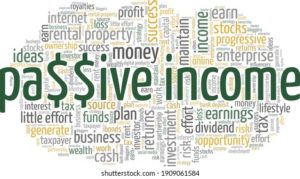We received an email from a reader of DividendCafe.ca. Thanks for your kind words and for following my blog. I will try to answer the readers questions as best I can here.
If anyone else has questions, please put them in the comment section or send us an email.
Thank you for the great wisdom and resources you have provided.
I have been following your blog for over a year and have read all of the posts several times over.
The wisdom and knowledge you have provided is concise, straightforward ways is really helpful to all age groups.
Your dividend investing strategy and retirement income generating strategies – company pension, CPP, OAS, plus dividend income from RIF, TFSA and non-reg – are almost identical to mine.
I have some new problems after “reaching” FI. There are no clear strategies to follow.
When to retire:
* Each one more year will add “a lot” more income to company pension and CPP
* I do not want to touch the principal, so I will leave all to the next generation. But if I retire now, I will need to cut into some of the principal between now and age 65. The number will also be somewhat on the borderline at age 65 only using pensions, not to use portfolio income.
This is something everyone has to decide for themselves. I wanted to retire earlier as well. We had planned for retirement to use dividends, CPP, Pension (small), and a 2 percent withdrawal of capital if required. When we had enough to equal my salary, I could retire. But having a child later in life required more buffer. So, we kept building the portfolio.
* Age consideration – late fifties or early 60s.
For me it was sixty-three. I think it depends on your expectations of income, and priorities.
* Work-related stress considerations.
Stress was really not a problem for me. Never worked long hours. Always tried to organize and work smart.
* Inflation threat: How much buffer do you need to build? Twenty percent more over the expense? Thirty percent or 60%? Considering the expense difference of Go-Go, Slow-Go, No-Go years.
Inflation protection is built in when you invest in good dividend paying companies. We have 80% of our portfolio in Canadian companies that have histories of paying and raising dividends. Some well over one hundred years. How much buffer? When I retired we had dividends that exceeded my salary by 20%, so CPP, OAS, and Pension were bonus. And dividends have continued to grow over the 5 years since retiring. Still not taking CPP and OAS. Waiting till seventy.
* This is all about psychology – how did you make the decision to retire?
It was not hard. When I reached my enough number I pulled the trigger. You are right about psychology, you have to have a plan about what you will do with your time.
In addition, your life experience and wisdom after FI/retirement:
* Do you move away from your attention from investing, including DGI, as they are “simple” and you have reached your goal; how did you achieve that?
No change in attention to investing. The only thing was that we stopped saving and putting more money into investing. Instead of re-investing the dividends we started taking them out as our new salary.
* I am thinking of adding more safer approach (more broadly based ETFs e.g., VTI + XIC, etc.), as the investing income is no longer the top priority.
Investment income is the top priority in retirement. ETFs may be a safe and easier way to go, but it has it’s pitfalls. I don’t believe that ETFs are the solution. When you have built a good portfolio of companies, you don’t need to go backwards and have someone else invest for you. The indexes may be an effective way to keep up with the markets, but you also get the mediocre and bad companies. ETFs are good if you are worried that your spouse may not be able to manage the portfolio. For us we will stay with individual companies and our son will be able to manage when I can not anymore.
* What are the new goals after reaching FI/retirement?
* What do you do in retirement to fulfill lifetime achievements of DGI?
This is where it gets harder for me. I play a lot of golf, read blogs, and news stories. Would like to spend more time traveling. I like warm climates, but my spouse and I like to travel differently. She wants to see the world, I want to spend winters some place warm and stay put. We are trying to work on this now.
* Any suggestions on books, podcasting, blogs, etc. about life wisdom after FI/retirement?
Not so much for investing specifically. When traveling I would always look for a financial or investing magazine to read on the flight. I still read business articles in the Globe & Mail and elsewhere to keep up. New investors should read the dividendstrategy.ca blog. Beat the TSX is what I believe every new investor can follow and do better then any ETF. Biographies of great investors like Warren Buffet and others have been helpful. I believe the biggest mistake people make is believing everything they read. Common sense and wisdom is what we all try to achieve by reading and listening to a variety of sources. Including those that do not support our biases.
* Lifetime stories about living, maintaining health, travel, relationships after FI
* What is your advice to people after reaching FI/retirement?
We have done investing our way. It is very satisfying when a plan you have worked on for over 20 years comes together like ours has. I say stay with what got you there and enjoy FI. But retirement advise is not my thing. We have been held back with aging parents but now feel like we must get going in the time we have while still healthy.
My advice, let loose a little and spend more on yourself, and be generous and help others.
These are the topics I have been thinking about lately. I believe they would be great topics for your blog projects when you have the time. There aren’t many resources available online from the DGI community discussing these topics, apart from some world travel stories.




Thanks for stopping by Don. Congrats on your success. Yes, Henry Mah’s strategy is working. As you already know this is a strategy that has been proven and works well.